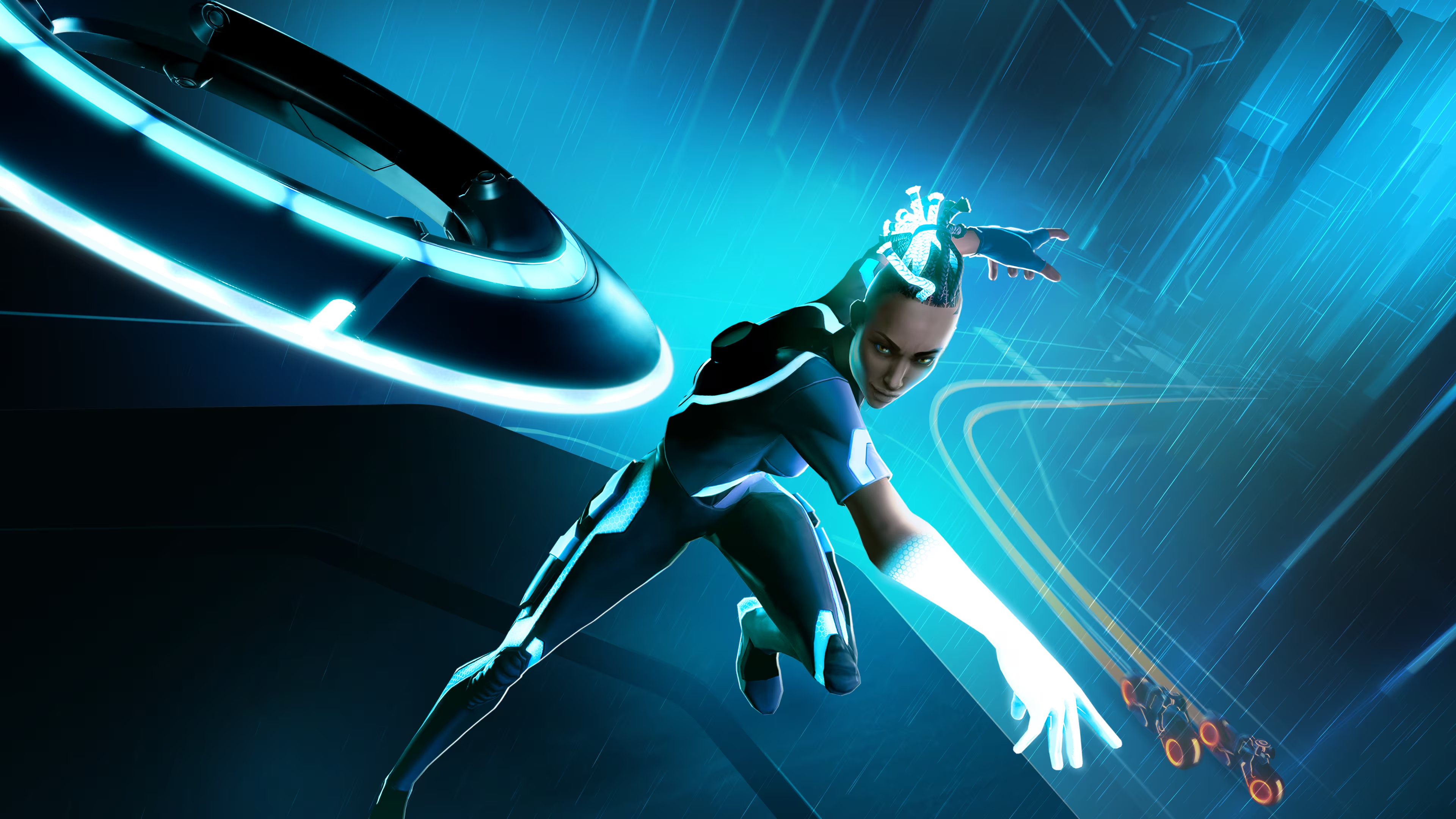Pick up your Identity Discs, rev your Light Cycles and prepare to defy your programme, because TRON: Catalyst is here. The game is a follow-up to Bithell Games’ last outing, TRON: Identity. And while Catalyst isn’t quite a direct sequel to Identity, events and characters from the original game have informed the narrative of this new instalment. I’m not particularly informed on the franchise, but Bithell Games now has a reputation for turning simple ideas into subversive spectacles.
Whether that’s delving into the mind of a legendary assassin in John Wick Hex, with its tactical strategy gameplay, or transforming Solitaire into an espionage blockbuster with The Solitaire Conspiracy, or even turning literal shapes into cult characters in Thomas Was Alone, they’re all out-of-the-box ideas with interesting outcomes. So, despite having a distinct lack of Tron knowledge, I had confidence I’d find a lot to like about TRON: Catalyst.
However, I didn’t think I’d have to look so hard to find those likeable elements. Catalyst doesn’t quite fit any genre mould to confidently call it one thing. It’s an isometric adventure that has combat and level design akin to a Metroidvania, but doesn’t have the pace of one. It also has a loop system where you, at the press of a button, can reset yourself at the start of the level, but it’s not a roguelike.
Alongside that, there’s a skill tree to bolster the main character’s abilities, but there are fewer than 10 to work towards, leaving it to feel more like a skill branch. Whilst this does sound like an identity crisis, the plethora of systems does just about enough to warrant being in the game, I just think it’s stretched incredibly thin.
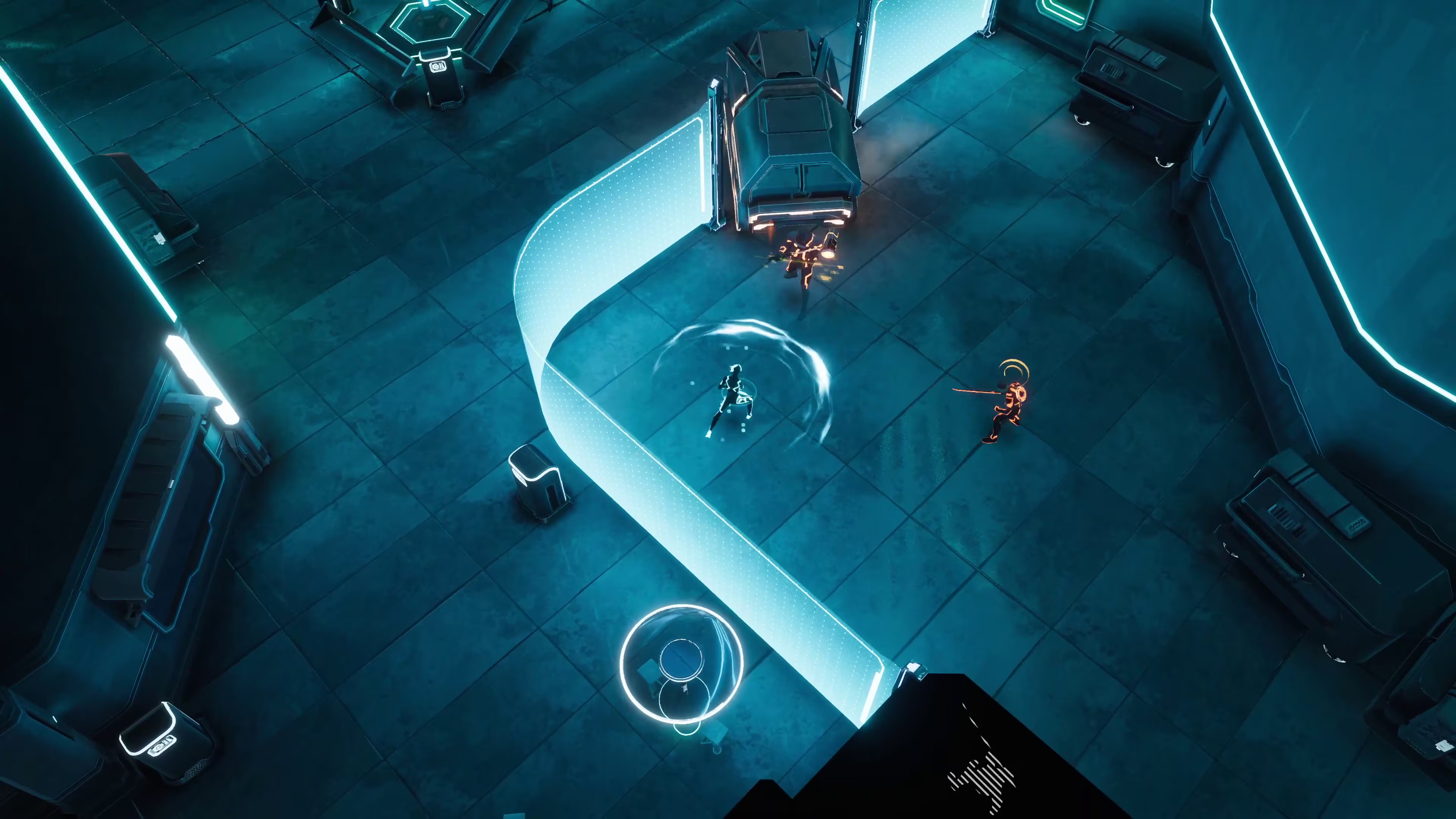
Loop Ones And Zeros
Like a TV Series that your friend promises gets better in the third season, TRON: Catalyst has that same hurdle. The game doesn’t really find its footing till just over the halfway point, for me. And for a 10-hour game, I’m not looking to just enjoy the last four hours, but let’s start at the beginning, shall we? You play as Exo, a courier in the second Grid (world) that players might have become familiar with in Identity.
We meet Exo as she’s doing her job just like in any other cycle. That is, until a suspicious package she has to deliver explodes, resulting in her waking up in a prison controlled by the Core. Exo plans to escape, but she soon realises that her programming has changed, as she can reset herself back at the start of her day; this is known as her Glitch. Seems pretty useless when stuck in a prison, but her Identity Disc stores any knowledge gained from previous loops, resulting in puzzles that see you jumping back in time.
What later transpires is a potential collapse of the Grid because of opposing forces fighting for control, as well as a storm looking to wipe out everyone’s existence. I don’t normally go too far into plot in my reviews, as I like to leave a lot of the discovery to the potential player reading this, but it’s hard not to talk about the relative stakes without getting into at least half of the game.
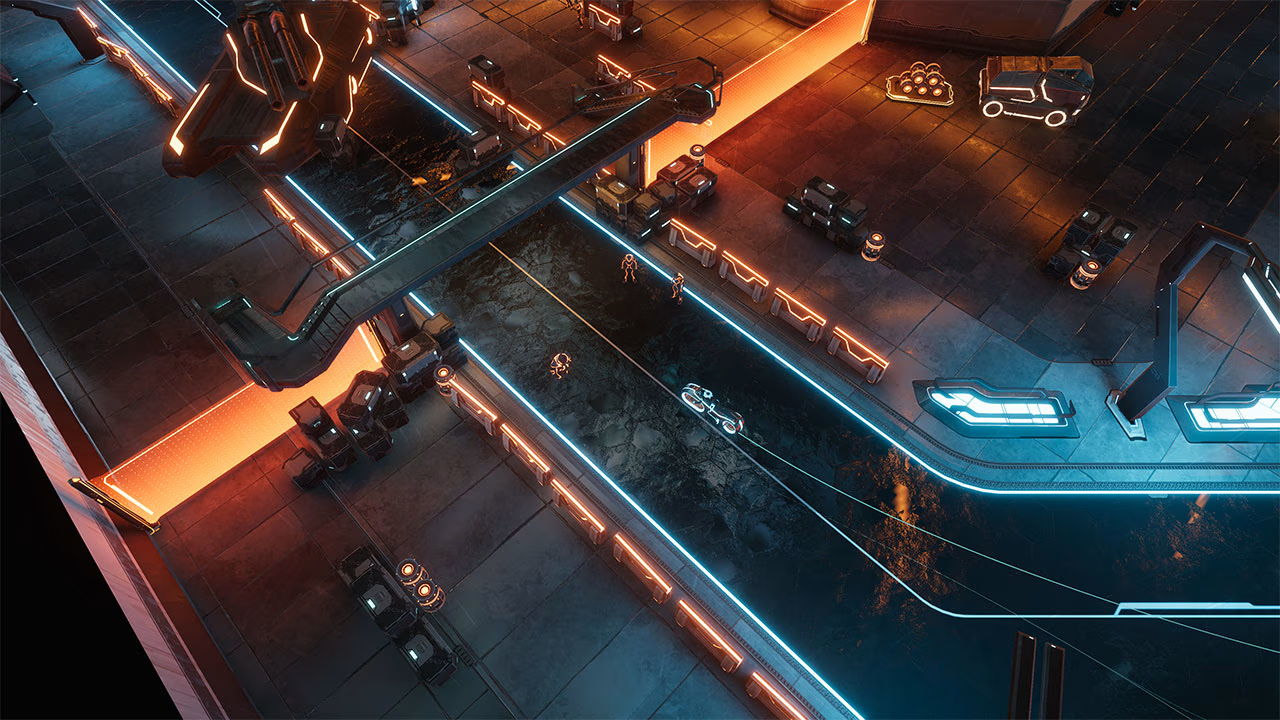
A Glitch In The Matrix
TRON: Catalyst also struggles with this aspect, as anything unrelated to the core “problem” is uninteresting. You meet multiple characters with an eyerolling amount of quips and unlikable personalities, who seemingly present a progression blocker, then immediately resolve it. There’s no motivation for anyone outside of Exo, and because of that, much of the writing becomes redundant.
Whilst your Identity Disc is the key to solving these looping puzzles I mentioned, it’s also your weapon of choice. The combat features a 3-hit combo strike, a parry, a throwing attack, and a dodge roll, as well as a hacking mechanic that gives your weapon a modifier. A very basic set-up, and very basic in execution. It does what it needs to do, but there’s nothing that makes it exciting.
Your button presses don’t quite line up with the animations, every fight feels like the same, and outside of a couple of new introductions in the literal final hours, there’s nothing that changes the formula in interesting ways. Despite programs (humans in the Grid world) having signifying colours to their allegiance or personality, there are only a handful of enemy types you’ll come across.
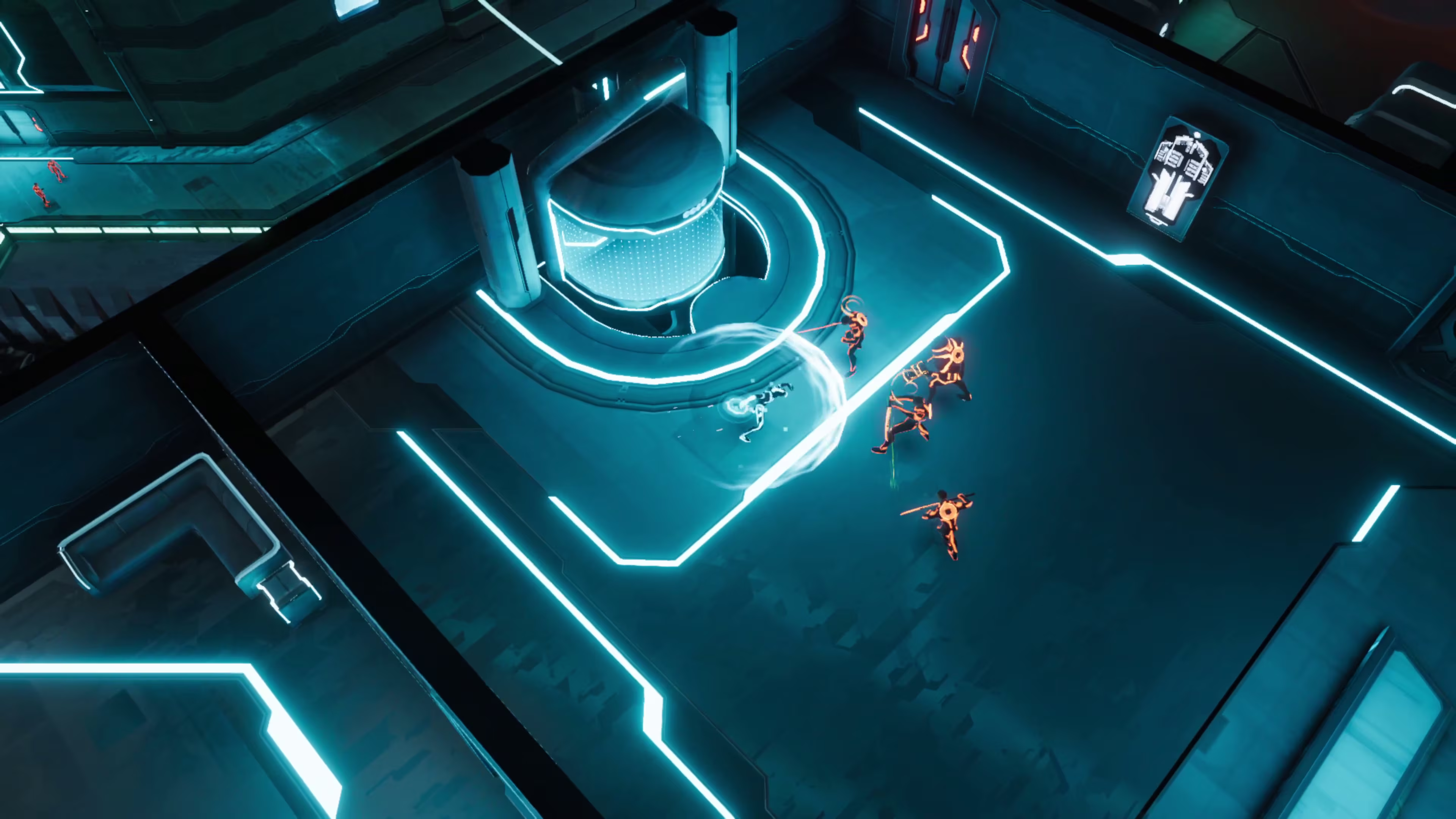
System Shock
Couple this with a narrative that’s only interesting when it’s showing its cards, and you’ve got a very tepid opening few hours. If you’re not a Tron fan at all, I can imagine it being CTRL+ALT+Deleted off your system before the game truly opens up. There’s nothing inherently bad about any of what TRON: Catalyst has to offer; to look glass-half-full, it’s a very approachable offering of a genre of games that can kick you to the curb.
Titles like Prince of Persia: The Lost Crown, Hades, even retro GTA come to mind when playing this, but it doesn’t quite excel at being any of them, despite sharing similar gameplay DNA. Then you have the visual side of the game. It, of course, ticks all of the boxes of what I imagine Tron to be, despite being removed from the IP. The use of neon in the characters and environments, the cold greys juxtaposing them, the monolithic structures that tower over the small programs that inhabit it.
It all adds up to a decent art direction, but there’s nothing eye-catching as you go from level to level and face some of its uniformity. The city level is a highlight as it has this noir-drenched style about it: always raining, neon reflecting off the puddled ground, a bustling metropolitan controlled by the Core. I just wish every facet had this level of detail.
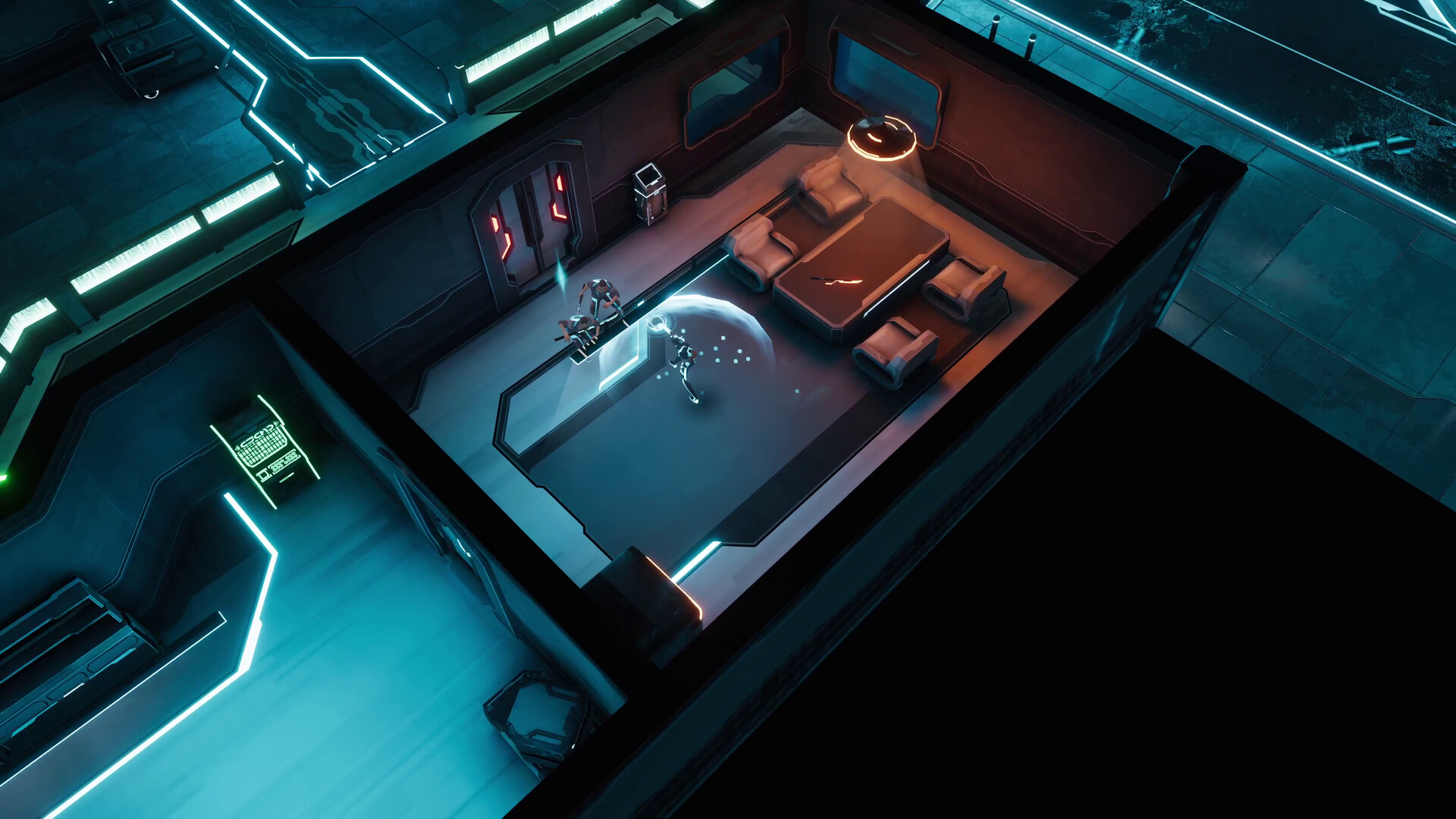
Where’s The Catalyst?
Couple the visuals with a soundtrack from Dan Le Sac, and you’ve got a relatively moody, neon-sci-fi atmosphere overall. Low droning synths and pulsating beats elevate the action a smidgen, but it’s hard to feel excited when the action is pulling its punches. Speaking of which, there’s a handful of voice-acted moments that cover some of the pivotal scenes.
None of which are outstanding, but they’re serviceable at trying to heighten the weight behind the plot. I feel like I’m looping myself at this point, hammering home the fact that everything about TRON: Catalyst is just fine. There’s nothing bad with what the game has to offer, but nothing is exciting about it either. A promising concept of being a glitch in the system and resetting timelines never felt so predictable, and I guess that’s the game’s biggest problem.
If you do like the Tron series, you might get more out of this. It also continues Identity in more ways than a direct sequel, and the promise of a bigger world is on the horizon if there is ever to be a third centicycle of this collaboration, but this certainly isn’t a high point.
TRON: Catalyst is out now for PlayStation 5 (review platform), Xbox, Nintendo Switch and PC via Steam.
Developers: Bithell Games
Publisher: Big Fan Games, Devolver Digital
Disclaimer: In order to complete this review, we were provided with a promotional copy of the game. For our full review policy, please go here.
If you enjoyed this article or any more of our content, please consider our Patreon.
Make sure to follow Finger Guns on our social channels. Twitter, Facebook, Twitch, Spotify or Apple Podcasts – to keep up to date on our news, reviews and features.
